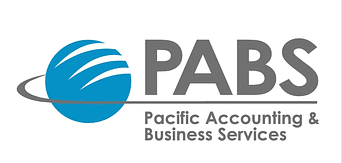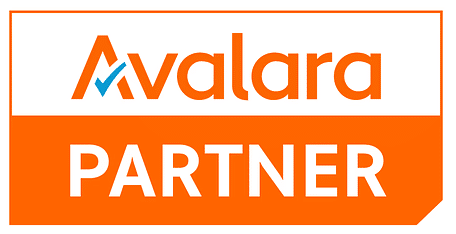Getting Ready For 2025 Tax Season
Tax season can feel overwhelming, especially for small business owners juggling multiple responsibilities. However, with a bit of preparation and planning, you can handle your taxes confidently and avoid last-minute stress. This guide will help you get ready for the 2025 tax season step by step. You’ll also be glad you planned ahead instead of waiting until the last minute to gather necessary documents and take advantage of deductions you might not be aware of.
Start Early To Avoid Stress
One of the best ways to prepare for tax season is to start early. Waiting until the last minute can lead to mistakes, missed deductions, or even late filing penalties. You’ll have plenty of time to gather documents, review your finances, and seek help if needed. After the turn of the new year, it’s good to think about business operations and what you’ll need to make this process seamless.
Organize Your Financial Records
Keeping your financial records in order is key to a smooth tax filing process. Begin by gathering all income statements, including invoices, receipts, and bank statements. Make sure you’ve tracked all your business expenses. Some of these examples include utility bills, rent payments, and supplies (i.e printers, copiers, etc.)
You could also consider purchasing accounting software to make this task much easier. These tools store everything in one place and generate reports when needed. Another option is to delegate your accounting services to an accounting and tax specialist who understands the ever-changing tax rules for small businesses to keep you ahead of the game.
Know The Important Deadlines
Missing a tax deadline can result in penalties and additional fees. Mark key dates on your google calendar or even set a reminder with Alexa if you have to.
- January 31, 2025: Deadline to send W-2s and 1099s to employees and contractors.
- March 15, 2025: Deadline for S-Corp and partnership tax returns.
- April 15, 2025: Individual tax returns, C Corp returns and most small business filings are due.
If you think you’ll need more time, file for an extension. Remember, an extension gives you more time to file but doesn’t delay payment deadlines (hint: you are still obligated to pay the taxes you owe on your filing deadline).
Understand Your Tax Obligations
Different types of businesses have different tax responsibilities. For instance, all businesses must report their income, but sole proprietors, some partnerships and independent contractors also need to pay self-employment tax, which covers Social Security and Medicare.
If you have employees, you’ll need to manage payroll taxes. Businesses that sell products or taxable services may also need to collect and remit sales tax. Ignoring these obligations can lead to penalties. It makes sense to work with a tax professional who understands the complexities of your business. From startups to seasoned businesses, most owners would agree that having an expert by your side for tax preparation makes life much easier.
Take Advantage Of Tax Deductions
Small business owners can reduce their taxable income by claiming deductions. Here are some common deductions to consider:
- Home Office Deduction: If you use part of your home exclusively for business, you may qualify for this deduction. Measure the space used and keep utility bills as proof.
- Business Vehicle Expenses: Keep detailed mileage logs if you use a car, truck, or other business vehicle (i.e van) for work. You can deduct either actual expenses or use the standard mileage rate.
- Office Supplies and Equipment: Items like computers, desks, and printers may be deductible. Don’t forget software subscriptions and internet costs that you pay monthly that can be included as a write-off.
Review Changes In Tax Laws
Tax laws can change from year to year, so it’s essential to stay informed about updates that could affect your business. For the 2025 tax season, check for changes in standard deductions, tax rates, and available credits. The IRS website and information from your accountant are reliable sources for staying informed. Staying on top of these changes ensures you’re not missing out on benefits or unintentionally violating regulations.
Here are key tax updates for 2025:
W-2: Employers must provide by January 31, 2025, detailing 2024 earnings and withholdings.
1099 Forms
1099-NEC: For contractors paid $600+, due January 31.
1099-MISC: Miscellaneous income, due January 31.
1099-INT: Interest income over $10, due January 31.
1098: Mortgage interest statements due January 31, 2025, if you itemize deductions.
1095-A:Marketplace insurance details for 2024, needed to file Form 8962.
- Available by mid-February 2025.
Consider Setting Up A Tax Payment Plan
Paying taxes in one lump sum can be challenging, especially if your business struggles with cash flow. The IRS offers installment agreements, allowing you to spread your payments over several months. You can make estimated quarterly payments throughout the year to avoid a large bill in April. Planning your payments not only makes tax season less stressful but also helps with budgeting for other business expenses. The IRS has also rolled out an online portal for all tax payers. In this portal, you can set up anything you need for managing your taxes. If you can pay your tax bill in less than a year, you don’t even have to set up a plan, but make sure you pay within a year or you will expose yourself to more penalties and interest.
Protect Yourself From Tax Scams
Tax season often attracts scammers who attempt to steal sensitive information. To protect your business, follow these tips:
- Be cautious of emails or phone calls claiming to be from the IRS. Remember, the IRS does not initiate contact through email or phone.
- Keep personal and financial data secure by using strong passwords and encryption tools.
- Use reputable tax software or a trusted professional for filing.
- Do not send sensitive information through regular email or texts
Staying vigilant can prevent fraud and financial loss during tax season. It’s also imperative to use a systemized process with your company to avoid confusion. With a clear, consistent system in place, it’s easier to spot potential fraud or mistakes before they become costly problems. This approach helps build confidence in your tax filings and protects your business from unnecessary risks.
File On Time And Keep Copies
When you’re ready to file, double-check all information to ensure accuracy. Submitting your return on time is crucial to avoid penalties and interest. After filing, keep copies of your tax return and all supporting documents for at least three years. These records can be useful for future reference, audits, or applying for business loans. Most people no longer keep paper copies of their tax returns, opting instead to store digital copies for easier access and space-saving. It’s important to ensure these digital copies are securely backed up, whether on a trusted cloud service or external device.
Stay Ahead This Tax Season With Flexkeeper
Make managing your small business taxes easy with Flexkeeper, your virtual assistant for all your tax service needs. We help streamline your finances, ensure accuracy, and provide the support you need so you can focus on growing your business. Don’t let tax stress hold you back. Contact Flexkeeper today to get the expert assistance your business deserves!










